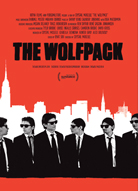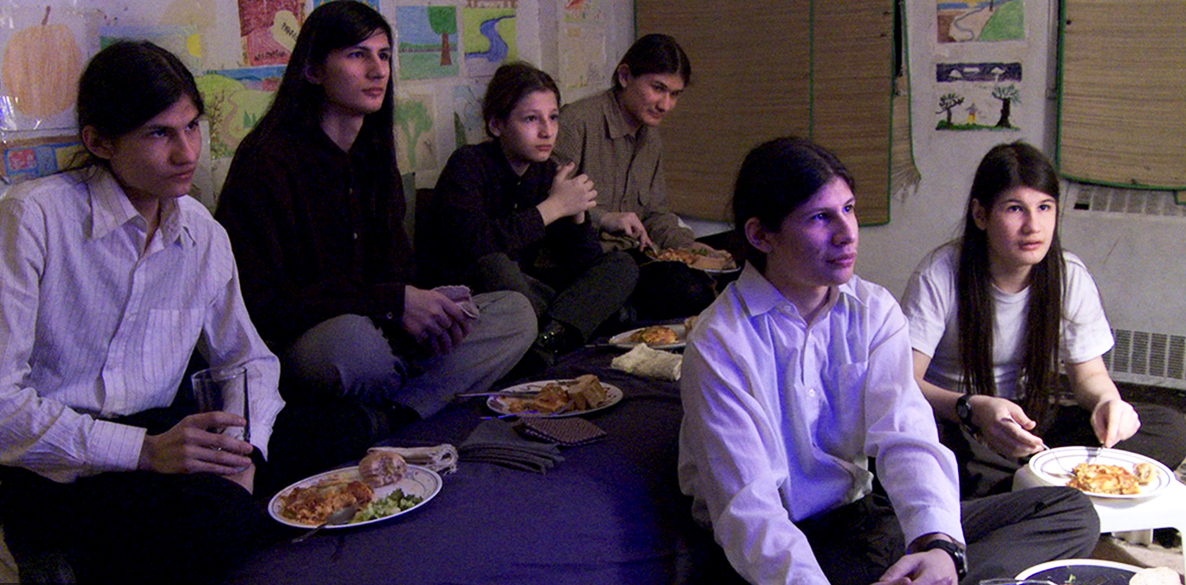The Tribeca Film Festival 2015 kicked off this week and we'll be bringing you our screening adventures. Here's special guest Joe Reid on a buzzy documentary...
 I thought a lot about Yorgos Lanthimos' Dogtooth during Crystal Moselle's Sundance winning documentary The Wolfpack, now playing at the Tribeca Film Festival. How could I not? The Wolfpack tells the story of the Angulo family, including the seven siblings whose extreme home-schooling meant they were rarely permitted outside their modest Lower East Side apartment. That kind of forced isolation of children is always going to make me think of Lanthimos' dark comedy.
I thought a lot about Yorgos Lanthimos' Dogtooth during Crystal Moselle's Sundance winning documentary The Wolfpack, now playing at the Tribeca Film Festival. How could I not? The Wolfpack tells the story of the Angulo family, including the seven siblings whose extreme home-schooling meant they were rarely permitted outside their modest Lower East Side apartment. That kind of forced isolation of children is always going to make me think of Lanthimos' dark comedy.
Knowing the premise, you might expect the Angulo kids to end up as warped as those kids in Dogtooth, but they're decidedly not. They speak about their unusual childhood with uncanny emotional intelligence and articulation. And the more you watch The Wolfpack, the more you might want to chalk it all up to the power of the movies.
The dynamite opening to the film sees the Angulo boys' filmed reenactment of Reservoir Dogs (1992), complete with costumes, props, and honestly? Some pretty decent line-readings. You immediately get a sense of how long the boys have had to perfect this production. It helps when you're never allowed to leave your home. These boys are no mere dabblers; they're movie fanatics, with hand-drawn movie art papering their walls; with lists at the ready ranking their personal favorites. They're shown transcribing Pulp Fiction, studying Blue Velvet, poring over Scream. I found myself leaning forward, relating so hard.

The story we're told about the Angulos sounds harrowing. Raised by a domineering father and his seemingly cowed wife in the Hare Krishna tradition, they were kept largely away from not only their Lower East Side neighborhood, but the world at large. Home-schooled, the six boys and one girl got out of the house between once and nine times a year; sometimes none. Their father is described, vaguely but with conviction, as an intimidating man, and his sons speak of him in terms ranging from bewilderment to resentment. As filmed for the movie, the Angulo patriarch seems sullen but impotent, which is fitting considering the film covers a stretch of time that sees the boys steadily emerging from under his thumb.
In a narrative film, the story might be that the boys escaped into the movies in order to avoid their home life. The reality is more satisfyingly complex. The movies haven't helped the Angulos escape the world; they've helped them understand it. I can't help but chalk up the humor and intelligence of the boys up to their cinematic education. Where else were they going to get it?
Moselle's movie does a good job blending the Angulos' home-video footage with interviews that draw out the boys' personalities. She manages to have her camera present for some breakthrough moments, too, like when the mother takes some independent steps of her own and calls up her long-estranged 88-year-old mother. That scene, plus one near the end when she and her son take a walk through an apple grove (this after she had lamented in an interview that her children grew up without knowing outdoor pleasures like fields and trees), are highly emotional highlights.
Ultimately, The Wolfpack succeeds because of its remarkable level of access to the Angulo family. You almost have to wonder whether the father knew his grip on his sons couldn't last much long, and the cameras were invited in once he knew that their independence was inevitable. Whatever it was that got Moselle in the door, it was worth it to meet such a remarkable cinematic family.